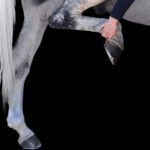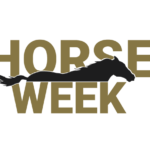After two years as president of the still-evolving National Hunter/Jumper Council, a frustrated Tom Struzzieri is stepping back.
“It’s time for a new punching bag,” said the man behind the highly successful HITS show series, a coast-to-coast enterprise that is one of the industry’s most powerful forces.
Struzzieri–viewed as the leader who would take the council to independence from USA Equestrian (formerly the American Horse Shows Association)–found his path to that goal paved with hurdles. Two months after Struzzieri was elected to the council’s top post in November 1999, he got off to a rocky start with USAE President Alan Balch by announcing during a public USAE board meeting that he did not support Balch’s renomination for a second three-year term. He complained Balch was stifling council efforts.
It was downhill from there, as the two continued to clash. In May 2000, Struzzieri cancelled plans for the council’s first national championship show, citing roadblocks put up by USAE. Balch said his organization simply was being fiscally responsible in exercising control over planning for the show. Being president of the council “takes someone who wants to spend the time and go toe-to-toe,” Struzzieri contended when revealing he would not run again. “It’s time for a new face.”
But the person tabbed to replace Struzzieri is not a new face at all. Show manager Larry Langer of California, the first president of the five-year-old council, is prepared to be at its helm again when elections are held next month.
Langer was selected as the only candidate for president by a nominating committee that earlier this week also chose Beth Miner, chairman of USAE’s Zone 6 for the vice presidency, Struzzieri for secretary and show manager John Rush of Florida as treasurer.
Struzzieri is waiting for two events to help smooth the way for the council’s emergence from USAE, which holds its purse strings. The council has been envisioned as a group equivalent to the U.S. Eventing Association (the former U.S. Combined Training Association) and the U.S. Dressage Federation, both of which are independent organizations for their disciplines.
Before the council can strike out on its own, the first thing that has to occur, in Struzzieri’s view, is settlement of the clash between USA Equestrian and the U.S. Equestrian Team over which will be the sport’s National Governing Body–a dispute that has troubled the waters throughout the entire industry.
Second, he contends, is election of a new USA Equestrian president. Balch is eligible for a two-year term in 2003, though he has not committed to running.
“With any luck, someone else will jump up to be nominated,” said Struzzieri, adding, “I would support that person 100 percent.”
Balch acknowledged the problems with the council when he addressed the USAE board in January. “We have not had the organizational will thus far to completely succeed in the founding of the National Hunter/Jumper Council, which still continues to struggle with its own vision of interdependence with the AHSA after four years of sometimes-tumultuous efforts,” he observed, hoping to remedy the situation.
A new mindset may help. Langer wants to view Balch as part of the solution, not part of the problem. “What we have to do is build a consensus that includes him,” Langer said. “I believe it can be done.”
Despite the problems, Struzzieri thinks the council will prevail.
“It’s a long race,” he commented, “and it’s not over yet.”
Okay, so you’ve read this far and you’re saying, “Why should I care?”
The answer is that the council has the potential to: expand the sport, bringing in the grass roots of unrecognized shows and attracting new people; offer more education in its disciplines; hold a broad-based national championship and undertake a marketing campaign.
It already has checked off several key items on its agenda, including presenting hunter/jumper rule changes as a package to the USAE board. That means the rules don’t have to be debated as they once were in front of folks from other breeds and disciplines, and can be relegated to a more appropriate forum of people who are interested only in hunters and jumpers.
Another achievement was finally holding a council national championship as part of the Capital Challenge show this fall.
Even more significant, the council’s initiative mandating certified protective headgear for juniors is now part of the rulebook after a long campaign led by council vice president Joe Dotoli (who declined to run again, citing demands on his time.)
Now, says Langer, it’s appropriate to move on, and he’s glad the council’s board of governors seems to be united as never before.
He doesn’t, however, see independence before 2005 (coincidentally the year Balch would leave office if he runs again), explaining the long process would require constitutional changes.
When Struzzieri was elected, some of those involved with the council were unhappy with Langer, feeling he was moving too slowly on the independence front. Now they have seen it’s not so easy, which should make Langer’s return to the presidency a smoother ride than his first trip.
And he’s not about to be an I-told-you-so.
“I could say that,” Langer agreed when asked, “but that’s just not me. I was happy to work for a sport I’m a part of, because it will come back to me if the sport is better.”





